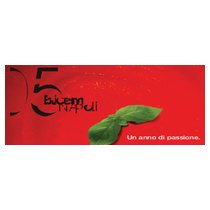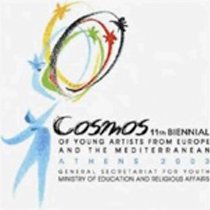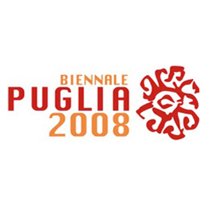19 – 28 September 2005
In a time in which cultural, religious and economical differences continued to divide the peoples instead of bringing them together, the Biennial intended to be a place where civilizations can meet, even if in a short time. According to this line, the edition was focused on the participation of South Mediterranean artists, underlining the ancient ties with the city.
The theme chosen by the organizers was Passion, one of the main features of Neapolitan life.
The theme was divided according to seven possible meanings, one per each artistic area: Temptations (the thrust of passion) for Applied Arts, Ideals (the exaltation of passion) for Images on the Move, Conflict (the struggle between passion) for Dance and Theatre shows, Communication (the exchange of passion) for Literature and Poetry, Attraction (the tie of passion) for Visual Arts, Fear (the other side of passion) for Music and Discovering the passion for Gastronomy.
Moreover, to assure the quality of the different activities and to determine the cultural lines of the Biennial, a Scientific Committee, comprised of Italian personalities, was appointed: Achille Bonito Oliva (President), Eduardo Cicelyn (Scientific Director), Rossella Guarracino (Executive Manager), Angela Tecce, Stefano DeCaro, Enrico Guglielmo, Pietro Guzzo, Gioacchino Lanza Tomasi, Maria Rosaria De Divitiis, Guido Trombetti, Pasquale Ciriello, Gennaro Ferrara, Francesco De Sanctis, Enrico Auricchio, Alfredo Scotti and Aurora Spinosa.
Theme: Passion
The theme chosen for this edition was Passion, meant as a complex background of feelings and behaviors. This subject seems to entirely seize the heterogeneous identity of Mediterranean and Europe, which tries to widen its boundaries towards the right direction of a coexistence of differences.
In such a moment, when the emotional side of every passion seems to prevail up to nihilism, this Biennial gives a constructive response, providing a constructive and creative meaning to the word passion.
It really seems that the city of Naples represent the natural theatre of such an event, since today the city seems to suggest a way to canalize passion in terms of cultural project open towards the social activity.
Numbers
Almost 700 artists from 22 Countries (Albania, Algeria, Bosnia-Herzegovina, Croatia, Cyprus, Finland, France, FYROM, Greece, Jordan, Kosovo, Italy, Malta, Portugal, Republic of San Marino, Slovenia, Serbia and Montenegro, Spain, Turkey, Egypt, Israel, Palestine) participated to the Biennial, among them more than 250 came from the Southern Mediterranean Coast.
More than 30.000 people attended the event.
Among the artists who participated, to be signaled the following ones: Artists without walls, group of Israeli and Palestine visual artists, Luther Blisset, collective of video-artists from Venice, Giorgio Andreotta Calò, performer and light designer from Venice, Zhe Xu, performer from France, Gianluca and Massimiliano De Serio, film-makers from Naples and Rami Farah, video-maker from Syria.
Venues
Castel Sant’Elmo was the venue of the Biennial, an ancient castle and fortress on the top hill of the city that during the event became the transnational, multimedia and multicultural Citadel of Creativity.
This edition of the Biennial was followed by several side activities: the Biennial Off, which offered a rich program of music, art and theatre on the whole Provincia di Napoli and the publishing of the Literary City Guide, a guide of Naples according to famous Neapolitan writers starting from the XIX century.
Bjcem
in collaboration with
Regione Campania
Provincia di Napoli
Comune di Napoli
Organizers
Presidents
Antonio Bassolino – President of Regione Campania
Dino Di Palma – President of Provincia of Naples
Rosa Russo Iervolino – Mayor of the City of Naples
Nicola Spinosa – Superintendent for the Polo Museale Napoletano
Vice Presidents
Antonella Basilico – Provincial Councillor for Cultural and Landscapes Goods
Angela Cortese – Provincial Councillor for Educational Politics
Marco Di Lello – Regional Councillor for Tourism and Cultural Goods
Rachele Furfaro – Town Councillor for Culture
Director
Achille Bonito Oliva
Members
Isadora D’Aimmo – Provincial Councillor for Peace
Maria Falbo – Provincial Councillor for Youth
Felice Iossa – President of the Mediterranean Commission of Regione Campania
Giovanna Martano – Provincial Councillor for Tourism
Scientific Committee
Achille Bonito Oliva (President), Eduardo Cicelyn (Scientific Director), Rossella Guarracino (Executive Manager), Angela Tecce, Stefano DeCaro, Enrico Guglielmo, Pietro Guzzo, Gioacchino Lanza Tomasi, Maria Rosaria De Divitiis, Guido Trombetti, Pasquale Ciriello, Gennaro Ferrara, Francesco De Sanctis, Enrico Auricchio, Alfredo Scotti, Aurora Spinosa
Organizing Committee Castel Sant’Elmo
Fernanda Capobianco, Angela Tecce, Katia Fiorentino, Maria Teresa Giannotti, Elda Oreto, Stefania Palumbo, Giovanna Serra
Regione Campania
Ilva Pizzorno – Director of Cultural Goods Department
Organization and Production
Scabec: Alessandro Porzio, Francesca Maciocia
Organizing Staff: Maurizio D’amico, Noemi Abrescia, Diana Claudia Apicella, Lucia Ferraro, Alessandra Liguori, Carmen Loiola
External Relations
Sigfrido Caccese, Susanna Savastano, Marco Tagliatela
Civita: Albino Ruberti, Lucia Bianco, Lucia Anna Iovieno, Luigi Mammoccio, Allegra Pazienti, Gaetana Rogato, Tatiana Travaglini
Communication and Promotion
Candida Vivalda, Francesca R. Dal Savio, Lucio Barbazza, Laura Testa
Technological Apparatus
Luca Pavone, Giovanni Volpicelli
Set Up Project
Daniela Antonini, Fabio Dumontet, Lucio Turchetta, Alex Zaske
Transport
Arteria
Insurance
Axa Art D’Ippolito, Lorenzano
Zone Attive
Emiliano Paoletti, Barbara Aubry, Marco Berti, Claudia Brizzi, Chiara Capodici, Rosangela Caputo, Domenico Petrolo, Floriana Pischedda, Marina Uttaro
Press Office
Civita: Costanza Pellerini
Zone Attive: Cristiana Pepe, Serena Cinquegrana, Paolo Le Grazie
BJCEM: Cocchi Ballairia; Adfarm and Chicas



